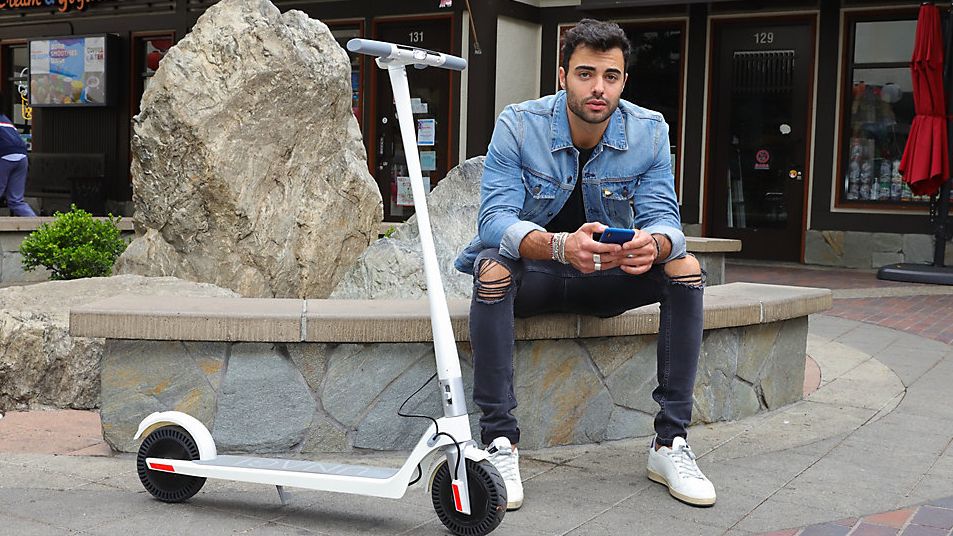LOS ANGELES — The COVID-19 pandemic has had a dramatic and negative effect on shared mobility of all kinds, from public transit, to ride-hails such as Lyft and Uber, to on-demand scooters. But some companies are leveraging consumer preferences for touchless, socially distanced transportation to their advantage.
On Wednesday, the electric scooter startup Unagi began offering a new subscription service in Los Angeles. Instead of renting scooters on demand by the minute, the company lets riders have a scooter all to themselves through its month-to-month rental program, Unagi All-Access. For $39 monthly, and a $50 initial set up fee, riders receive a fully assembled electric Model One from the Oakland startup delivered to their doorsteps within 24 hours, after which they can ride anywhere its two wheels can take them.
“There’s a general movement toward access over ownership,” said Unagi founder and chief executive, David Hyman, citing the success of subscription services for everything from beauty products to food to cars.
About a third of the $45 billion scooter market is inclined toward subscription, according to a survey Unagi did with the Haas School of Business at the University of California, Berkeley last year. And that trend is only accelerating during the pandemic.
“There’s been a seismic shift to personal transportation,” Hyman said. “People don’t want to go on public transportation or get in a shared Uber or Lyft, and they don’t want to touch a rideshare scooter on the street.”
In Los Angeles, ridership on Metro is currently down 50 percent, and scooter ridership is roughly a quarter of what it was a year ago, according to the L.A. Department of Transportation.
In 2019, Los Angeles was home to the country’s largest electric scooter pilot program. Eight different companies were operating more than 36,000 scooters on city streets, and they were on track to log roughly 19 million scooter rides during the program’s first year. Today, the program is down to six companies and 225,000 daily trips.
“Los Angeles is the epicenter of scooter culture,” said Hyman, who is simultaneously launching Unagi All-Access in L.A. and New York City. “When you go to Santa Monica or Venice, you couldn’t take two steps without falling over a scooter share, so we just wanted to start with the place where we felt like we’re going to have the most success.”
Bird, based in Santa Monica, first set the scooter craze aflight in 2017 and had, at one point, dabbled in subscriptions. While that program is no longer available, Bird is offering its Bird One scooter for outright sale, in addition to its by-the-minute rentals.
Unagi started two years ago with the idea of developing the Tesla of electric scooters – one that people would buy rather than rent. A high-performance scooter designed to be powerful, portable and agile, it’s made from lightweight carbon fiber and aluminum and is fitted with motors in both wheels, for better acceleration.
“From our very beginning, our model was always around personal possession,” said Hyman, who started the company with $250,000 he raised on Kickstarter and has continued to build the company with $5 million in investments.
Unagi first started dabbling with the scooter subscription idea late last year, adding a button to its website that said “subscribe” even though the service wasn’t available.
“It was a way to gauge consumer sentiment,” said Hyman, who quickly discovered that interest in subscriptions was 10 times greater than interest in buying its $1,000 scooter.
That was last fall. During the pandemic, interest in buying scooters has also been strong. Hyman said his company is selling thousands of scooters each month, compared with hundreds each month prior to the pandemic. Subscriptions, he said, are only likely to cannibalize 20 percent of the company’s outright sales “because it’s a different customer.”
“For us,” Hyman said, “this is just opening up our existing business to other people who prefer access over ownership or who couldn’t afford $1,000 for a scooter.”



